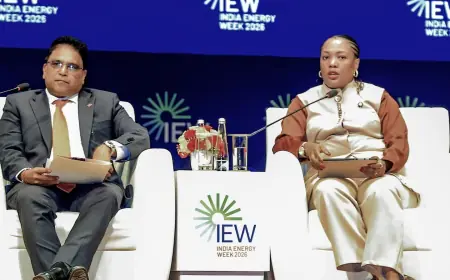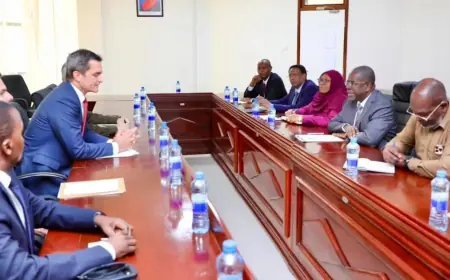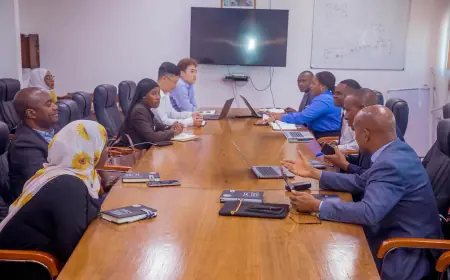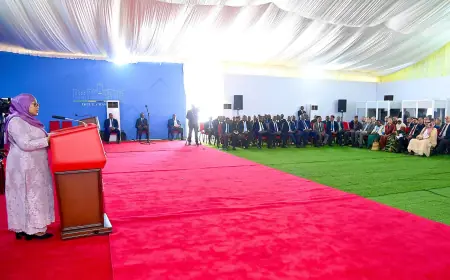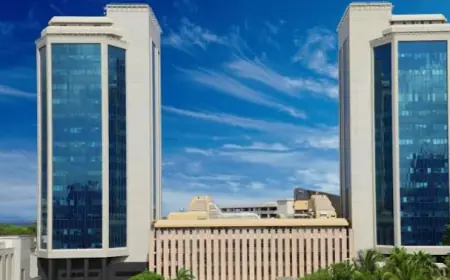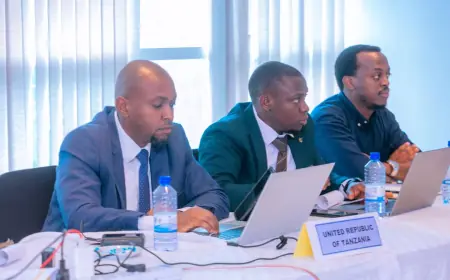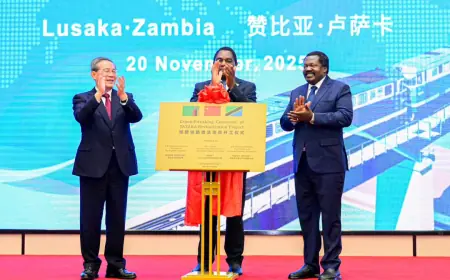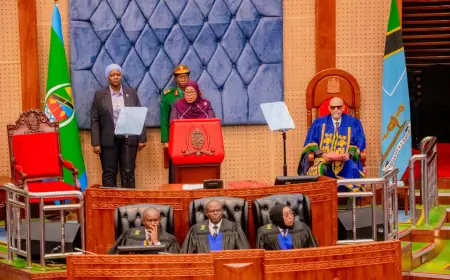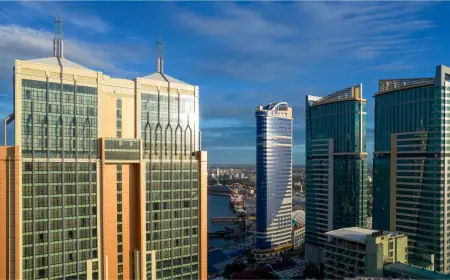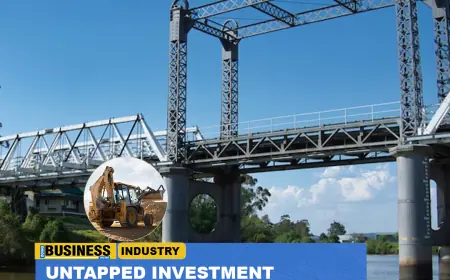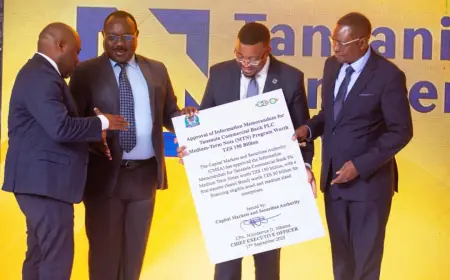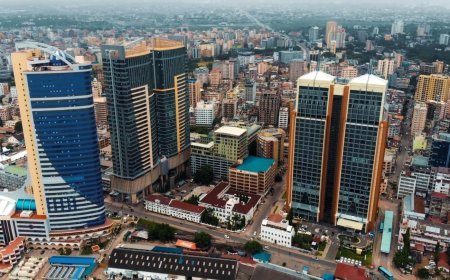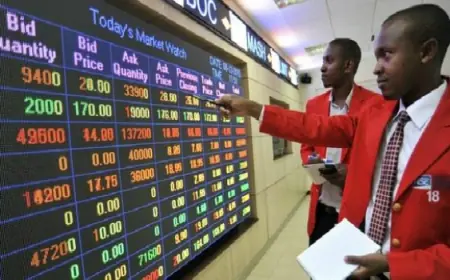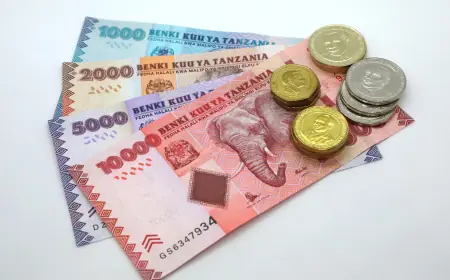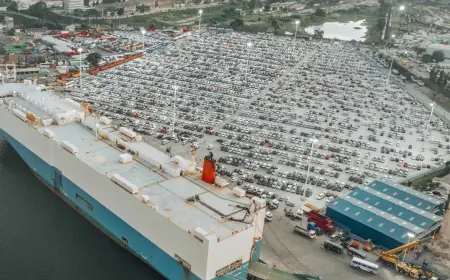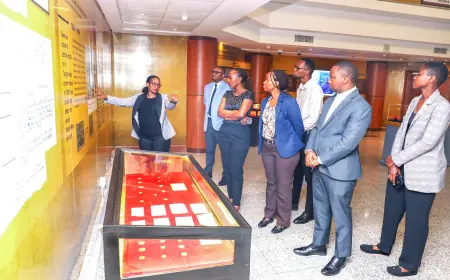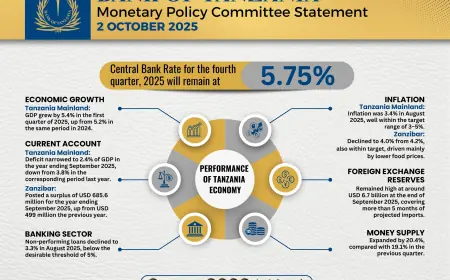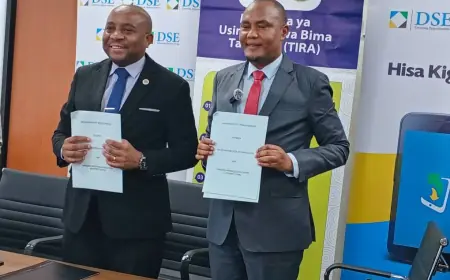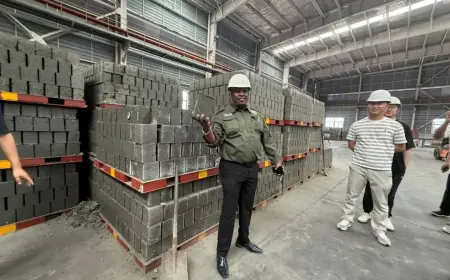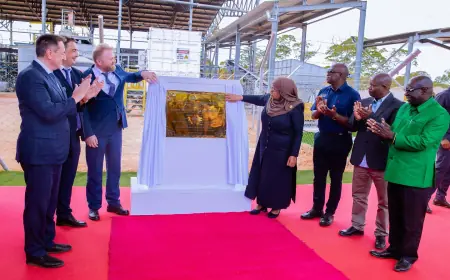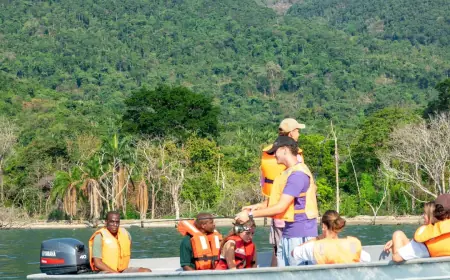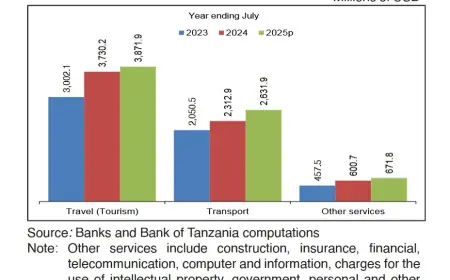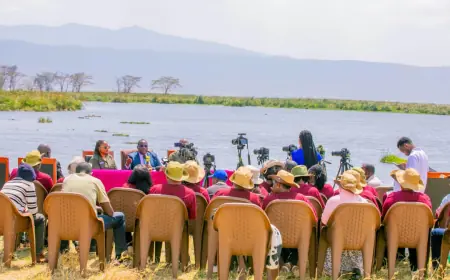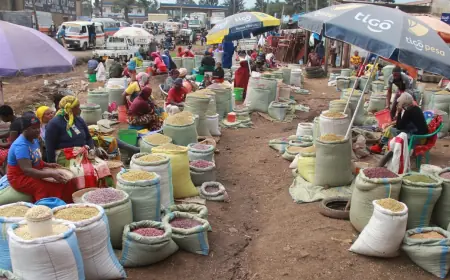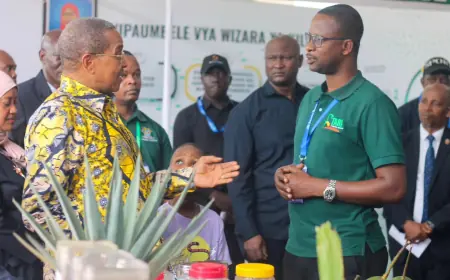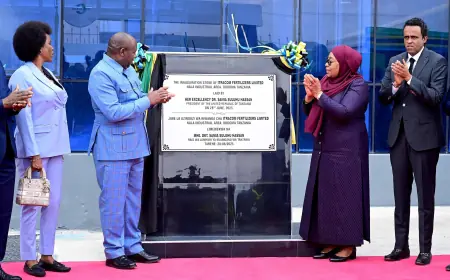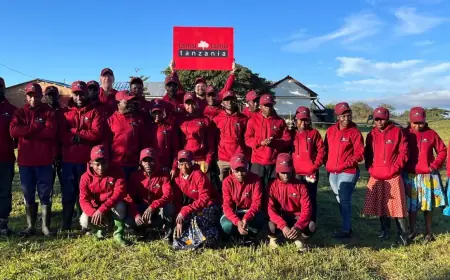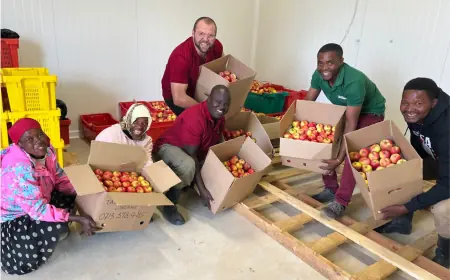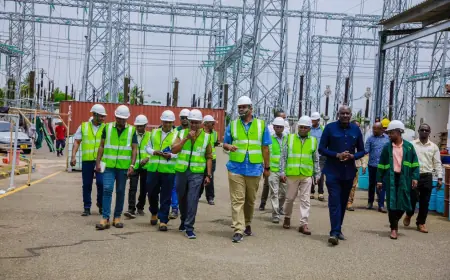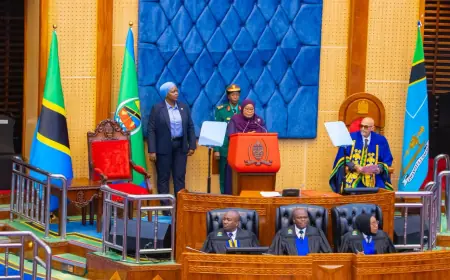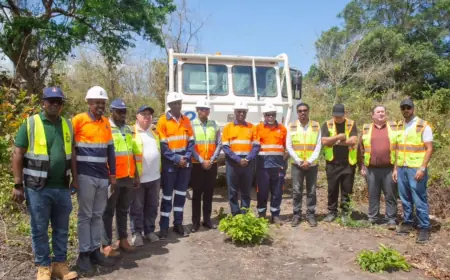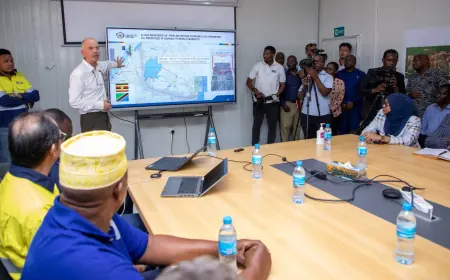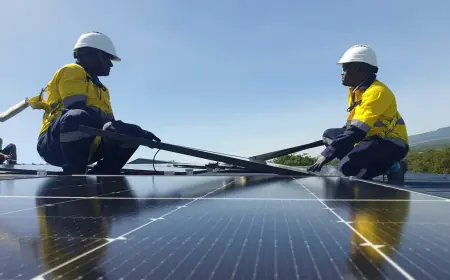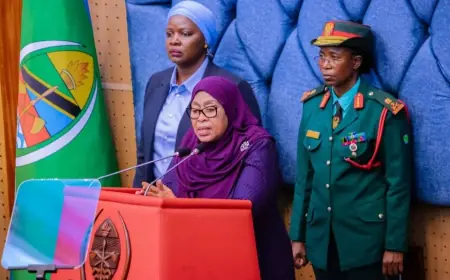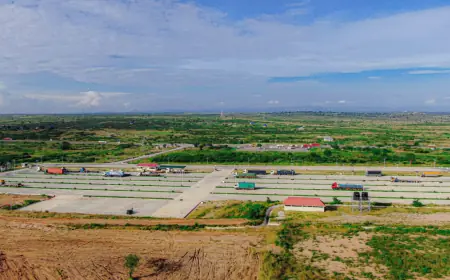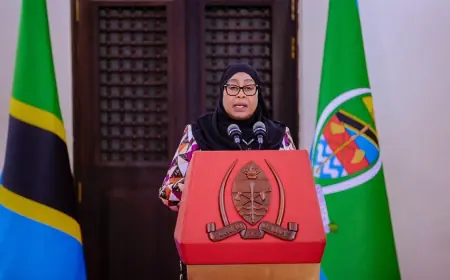CEOs champion green finance as Tanzania accelerates climate resilience agenda
Green finance encompasses investments that support environmental sustainability, including renewable energy, sustainable agriculture, clean transportation, efficient water use, and circular economy practices
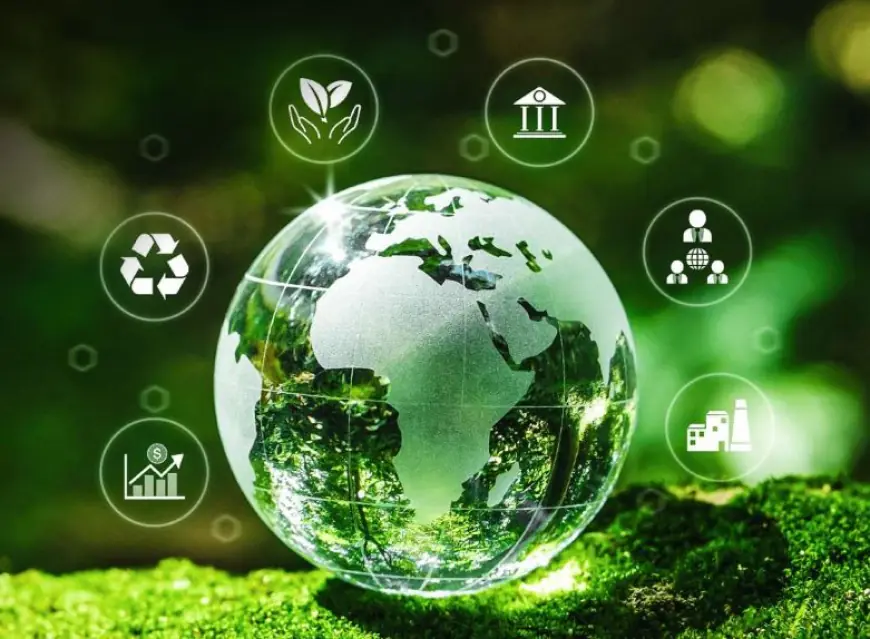
Dar es Salaam. Tanzania's ambition to build a climate-resilient, low-carbon economy gained new momentum on June 26, 2025, as the CEO Roundtable of Tanzania (CEOrt) hosted a pivotal Green Finance Forum in Dar es Salaam.
The high-level gathering drew senior representatives from the private sector, financial institutions, development agencies, and government, and sought to unlock investment flows for climate-smart initiatives and long-term sustainable development.
Held under the theme Mobilising Resources for the Green Transition discussions in the forum centred on practical strategies to mainstream green finance across sectors and build enabling ecosystems for inclusive climate action.
"Our economic future depends on the choices we make today. Businesses must be at the forefront of advancing sustainable growth models that are both profitable and planet-friendly," said CEOrt Executive Director, Ms Santina Benson.
"Green finance is not merely a trend—it is a long-term strategy to align purpose with performance," she added.
Green finance encompasses investments that support environmental sustainability, including renewable energy, sustainable agriculture, clean transportation, efficient water use, and circular economy practices.
It serves as a critical tool for advancing climate adaptation and mitigation efforts while fostering economic resilience.
Climate Realities Demand Urgent Investment
Although Tanzania contributes minimally to global greenhouse gas emissions, it remains highly vulnerable to climate change impacts.
The International Monetary Fund ranks Tanzania 45th among 185 countries for climate-related risk. Rising temperatures, shifting rainfall patterns, coastal degradation, and extreme weather events are already affecting key sectors.
According to the National Climate Change Response Strategy 2021–2026, climate-induced disruptions are costing the economy between 1 to 2 percent of GDP annually. In urban hubs like Dar es Salaam, this figure could rise to 3 percent by 2030 if resilience-building measures are not urgently scaled.
Forum participants highlighted that proactive investment in green finance is not only necessary—it is economically rational.
The Private Sector Steps Up
Throughout the forum, speakers and case studies showcased how Tanzanian businesses are already driving green transformation:
Agribusiness: Kilombero Valley Teak Company (KVTC) and Kilombero Sugar Company are integrating forest conservation and bioenergy in their operations. Tanzania Breweries Ltd is supporting farmers through smart agriculture solutions that boost yields and climate resilience.
Energy and Mining: Tembo Nickel is using cleaner smelting processes to align with emerging global standards, such as the EU Battery Passport. Songas Ltd contributes over 21 percent of Tanzania’s electricity supply using domestically sourced natural gas.
Manufacturing and Recycling: Tanpack Industries recycles over 8,000 tonnes of paper annually, sparing more than one million trees. TotalEnergies Tanzania is expanding solar energy use at its stations to support a net-zero strategy by 2050.
Transport and Logistics: Scania Tanzania and MOWARA have adopted compressed natural gas (CNG) fleets, significantly reducing emissions and operational costs.
Tourism: Ker & Downey Tanzania links eco-tourism with community development through conservation-aligned ventures such as beekeeping and renewable energy-powered lodges.
ICT and Health: Vodacom and Tigo are replacing diesel generators with solar infrastructure. Aga Khan Health Services is piloting an e-mobility programme to transition away from fossil-fuel-based vehicles.
Financial Services: CRDB Bank and NMB Bank Plc are front-runners in green financing. CRDB’s $300 million “Kijani Bond” and NMB’s $400 million green bond both received overwhelming investor interest, underlining the appetite for sustainable assets.
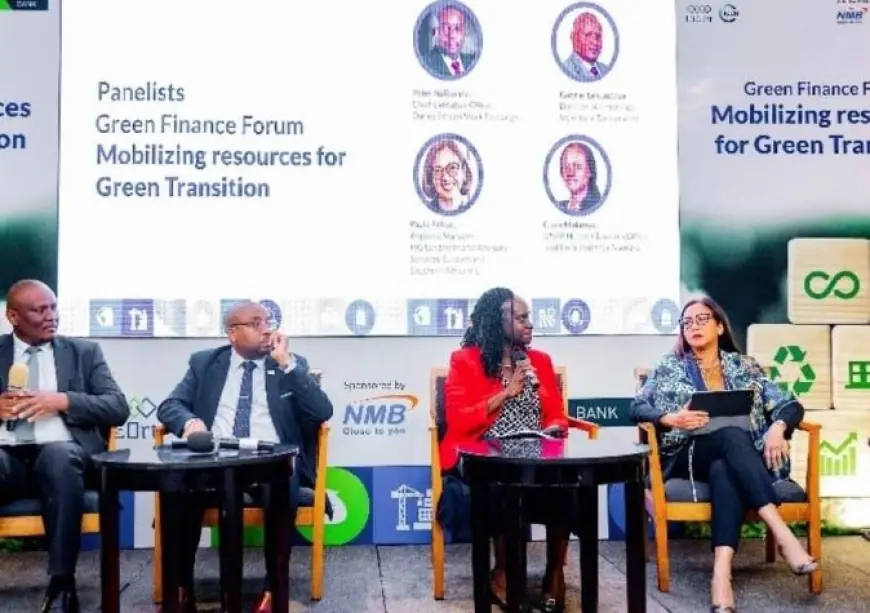
A Persistent Financing Gap
Despite these efforts, Tanzania still faces a significant climate finance gap. The country requires at least $150 million per year to strengthen adaptive capacity and implement its Nationally Determined Contributions (NDCs), which have a total estimated cost of $14 billion.
"Climate change has the potential to reverse decades of development gains," said Mr Innocent Yonazi, Head of Investor Relations at NMB Bank.
"It is a poverty multiplier, especially in Africa where agricultural productivity is already under stress. Yet our continent receives less than five percent of global climate finance," he noted.
He added, "We need to build inclusive financial systems that channel capital to where it matters most—supporting resilience, innovation, and impact."
Regulatory Frameworks and Policy Levers
The forum called on the Tanzanian government to strengthen its role in enabling green transition by functioning as:
A Market Facilitator: Offering incentives such as tax reliefs, green grants, and subsidies.
A Market Regulator: Enforcing environmental laws and setting emissions standards.
A Market Participant: Leading by example through sustainable public procurement and investment.
Participants stressed the importance of creating robust legal and institutional frameworks to incentivise green investment and remove existing barriers such as lack of infrastructure, policy uncertainty, and limited domestic manufacturing capacity.
CEOrt’s Business and Sustainability programme, backed by IUCN, is already working with over 200 CEOs to mainstream green practices. Its target is to ensure that 30 percent of its members are actively working towards carbon neutrality by 2030.
Turning Challenges into Innovation
The forum recognised that high upfront costs for renewable energy—such as $1 million for a 1MW solar plant—remain a deterrent. However, innovative models are emerging:
The Recycler, a local waste management firm, has recovered over 10 million plastic bottles and 13,000 tonnes of waste using scalable, commercial waste collection models.
CPS Limited, a real estate firm, is championing mass timber construction to lower emissions, though it currently relies on imports due to insufficient local demand and capacity. As AfCFTA unlocks regional markets, the firm is positioning itself to meet future housing needs sustainably.
Local entrepreneurs are also exploring alternatives like recycled solar panels, solar mini-grids, and decentralised green infrastructure.
CRDB Bank’s recent $25 million facility, launched in partnership with the Global Climate Partnership Fund, aims to provide funding and technical expertise to SMEs with climate-positive business models.

Partnership
The Green Finance Forum concluded with a resounding call for multi-sectoral collaboration. Government, private enterprise, civil society, and development partners must join forces to develop a coordinated and coherent strategy to build a climate-resilient economy.
As Ms Benson aptly concluded, "True transformation happens when intent is backed by capital. The private sector has shown its willingness to act—what is now required is policy support, public investment, and shared accountability."
What's Your Reaction?
 Like
0
Like
0
 Dislike
0
Dislike
0
 Love
0
Love
0
 Funny
0
Funny
0
 Angry
0
Angry
0
 Sad
0
Sad
0
 Wow
0
Wow
0
